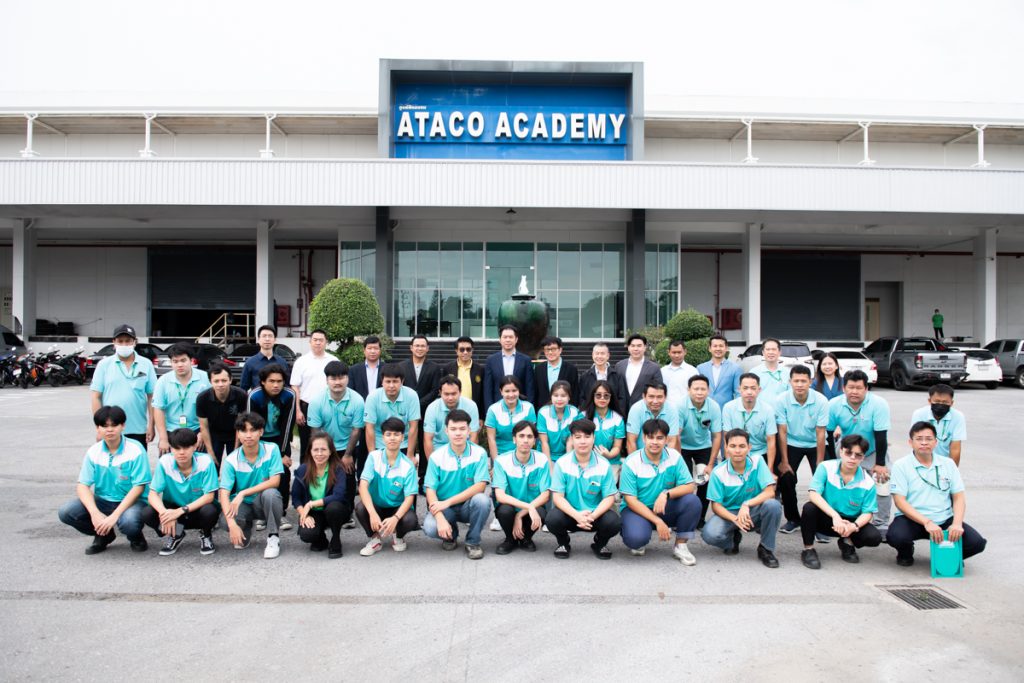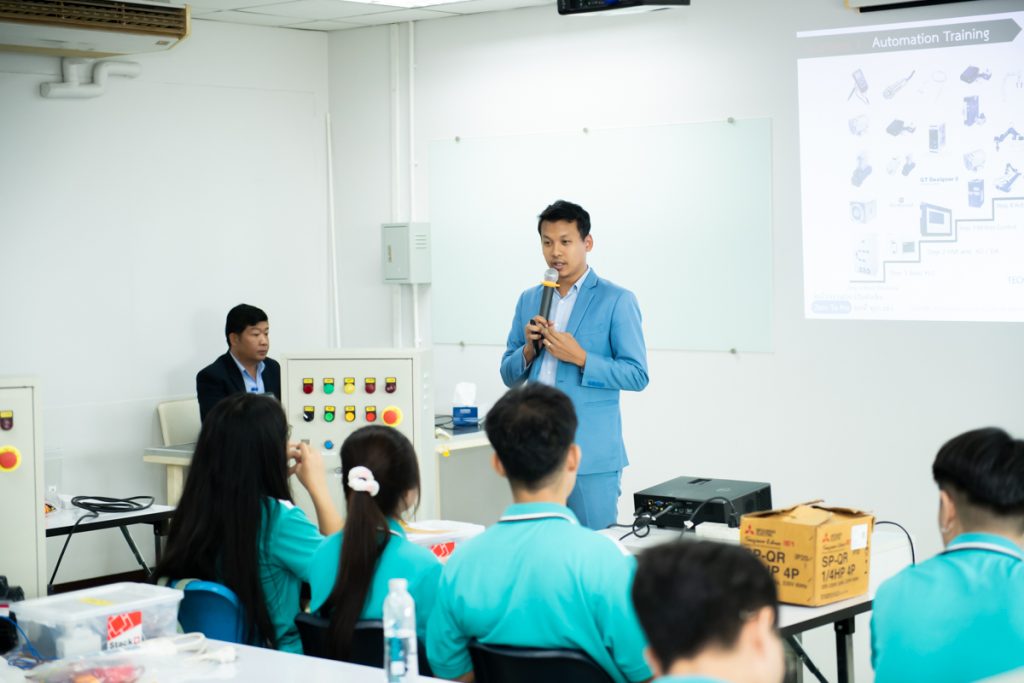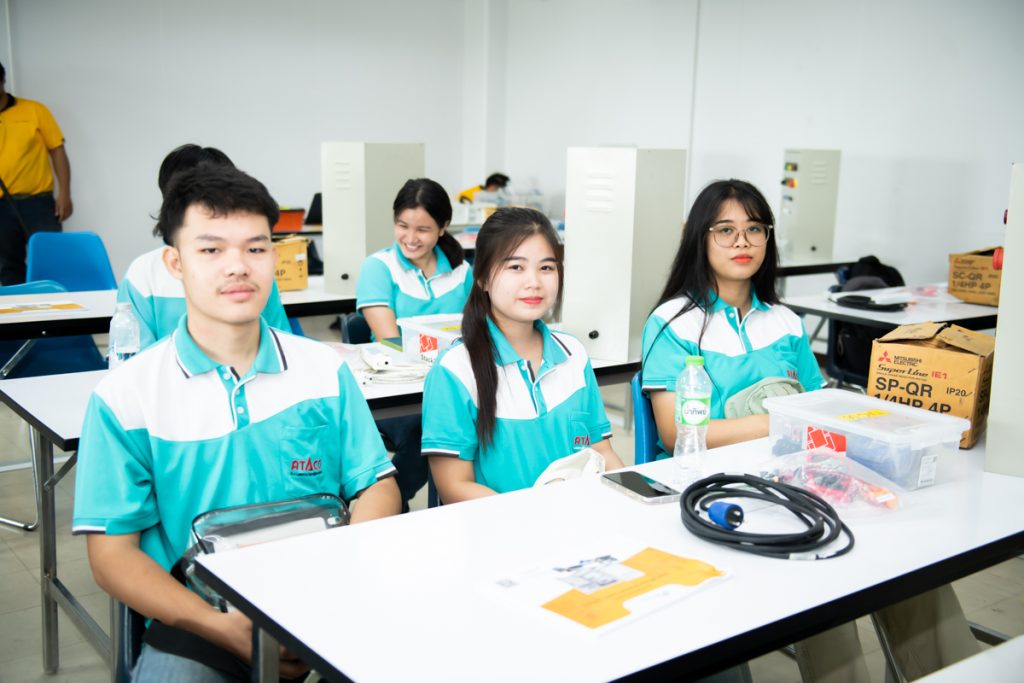
Rajamangala University of Technology Phra Nakhon (RMUTP) Conducts Training on “Competency Development for Integrating Automation and Industrial Robots to Create Sustainable Production Models”
The Digital Interdisciplinary and Robotics Institute, RMUTP, organized a training program titled “Competency Development for Integrating Automation and Industrial Robots to Create Sustainable Production Models.” This initiative is part of the New-Generation Graduate Program (Non-Degree Certificate) for the fiscal year 2024, aimed at developing high-competency personnel for the industrial sector (New Growth Engine). The event was inaugurated by Asst. Prof. Dr.Prin Boonkanit, Vice President for Research and Innovation Development, at Asahi-Thai Alloy Co., Ltd., Samut Prakan, on November 6, 2024.
Asst. Prof. Dr.Prin Boonkanit stated that technologies such as Artificial Intelligence (AI) and automation are increasingly collaborating with human workers. Hence, continuous learning and skill enhancement are crucial for the workforce, particularly in the robotics industry. Key skills include operating industrial robot controllers, programming industrial robots, utilizing robotic tools, and maintaining and replacing electrical components in robots. To meet these needs, RMUTP, with funding from the Ministry of Higher Education, Science, Research, and Innovation, developed this specialized training program.
This course is designed for 20 employees of Asahi-Thai Alloy Co., Ltd., combining onsite and online sessions over four months. Graduates can earn credits stored in the university’s credit bank. In the future, participants who meet the requirements and complete the program may transfer these credits toward a bachelor’s degree, creating significant opportunities for industrial personnel.
Dr.Ananop Piyasinsathit, Director of Quality Management Systems at Asahi-Thai Alloy Co., Ltd., highlighted the importance of education and lifelong learning. The collaboration between universities, the government, and private sectors ensures that the training program meets industry standards. The curriculum includes 60 hours of theoretical learning and 165 hours of practical training, totaling 225 hours, conducted over three days a week. Participants also engage in project-based work to develop innovations that address organizational challenges effectively.
This initiative not only enhances workforce skills but also fosters innovation, driving sustainable development in the industrial sector.


